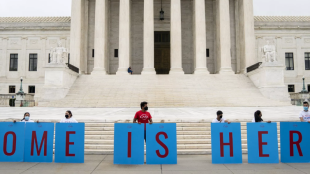The Cost of Congress Kicking the Can on DACA
(Source) In 2012, the U.S. Secretary of Homeland Security established Deferred Action for Childhood Arrivals (“DACA”) in an attempt to address the issue of deporting immigrants who were brought to the U.S. as children, never received legal status, and have lived continuously in the U.S. since 2007. Since its implementation, around 800,000 individuals have benefitted from the program’s provision of employment authorization and temporary relief from deportation. Despite the benefits the program has provided, it does not provide qualified recipients with permanent legal status or a path to citizenship. Furthermore, the program’s administrative implementation and lack of legislative endorsement leave the future of DACA vulnerable to a piecemeal reduction of the program’s benefits through litigation or a complete rescission of the program by the executive branch. This current state of Congressional ambivalence harms DACA recipients and DACA-eligible young people, while also financially harming American communities, businesses, and academic institutions. DACA Litigation On September 5, 2017, the Trump administration announced that it would rescind DACA, triggering a wave of lawsuits challenging the program’s validity. Parties opposing Trump’s decision to rescind DACA filed ten lawsuits, between January 2018 and June 2020, requesting preliminary injunctions that would require United States Citizenship [read more]

